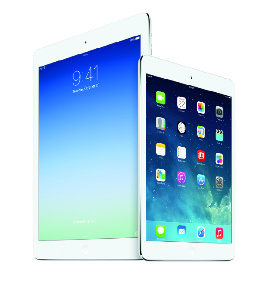 There has been a lot of comment about the latest alliance between Apple and IBM announced on 15 July. I say latest because it is not as if the companies haven’t tried the alliance thing before. Everyone always assumes that there is some kind of enmity between Apple and IBM because of that infamous superbowl advert in 1984.
There has been a lot of comment about the latest alliance between Apple and IBM announced on 15 July. I say latest because it is not as if the companies haven’t tried the alliance thing before. Everyone always assumes that there is some kind of enmity between Apple and IBM because of that infamous superbowl advert in 1984.
But the fact is that the companies have made common cause before. This perceptive AppleInsider commentary on the current agreement lists their previous partnerships, the AIM Alliance, the Taligent project and Kaleida Labs. Covering processors, OS development and multimedia platform development, the one thing they have in common is that they all fizzled out into disappointment.
The latest alliance appears to be a perfect fit, marrying Apple’s dominant position in the enterprise tablet and smartphone space with IBM’s longstanding experience of that market and its big data and analytics capabilities. Neither company has products that compete with the other’s in this space and neither has any intention of playing in the other’s space.
For much of its existence, Apple has been institutionally loath to get involved with the enterprise market. For its part, IBM has steered well clear of the consumer space after a couple of disastrous forays into that market in the 1990s. Since the disposal of IBM’s PC business to Lenovo there are few, if any, areas where IBM and Apple compete against each other.
No surprises that IBM and Apple are happy with the deal. Commenting on the alliance, Apple CEO Tim Cook said: “For the first time ever we’re putting IBM’s renowned big data analytics at iOS users’ fingertips, which opens up a large market opportunity for Apple. This is a radical step for enterprise and something that only Apple and IBM can deliver.”
IBM boss Ginni Rometty concentrated on how the deal exploited IBM’s “leadership in analytics, cloud, software and services. We are delighted to be teaming with Apple, whose innovations have transformed our lives in ways we take for granted, but can’t imagine living without. Our alliance will bring the same kind of transformation to the way people work, industries operate and companies perform”.
Analyst reaction has been mixed. Forrester Research analyst Frank Gillett said IBM’s market strength and coverage, “gives Apple enterprise capabilities and credibility at one stroke, and gives IBM a premium advantage in the race for mobile enterprise leadership”.
No surprises that IBM and Apple are happy with the deal. Analyst reaction has been mixed
KPMG UK head of technology, Tudor Aw, argued the announcement demonstrated “the need to form relationships with friends and foes alike. This “friendenemy” model is the new reality of a fast moving technology world where it is increasingly difficult to win alone and an ecosystem of partners will be the way ahead”.
Gartner analyst Van Baker commented: “Apple is not an enterprise company, but that’s not their DNA. It is IBM’s DNA and IBM has had those relationships forever. It’s an unlikely combination but a very strong one if they can pull it off.”
Trip Chowdhry, Global Equities, was less effusive. “We are sceptical about the timing of the deal,” he wrote, “which makes us wonder if IBM, and may be even AAPL (Apple) are going to miss their revenue expectations.”
There have been questions over whether the alliance will actually generate more sales for Apple even if the IBM salesforce is actively marketing iPads and iPhones to enterprise customers given that it has such a high penetration there already. But as we have seen with Blackberry, it is easy to lose a big share of the enterprise market very quickly. What the IBM deal gives Apple is a shield of credibility in a market where it has not tried too hard to have any credibility before.
That shield is designed to defend Apple from attack by Microsoft in particular which has made a big play of its own enterprise credentials when it comes to marketing Surface tablets and Windows smart phones. It also serves to create a credibility gap with rivals pushing Android tablets and smart phones.
Will it work? If it does, it will be a case of fourth time lucky. One thing in its favour is that the requirements on Apple to make it work do not seem particularly onerous. Most of it is really just about doing what it has always done. There is that bit about developing “a new class of more than 100 industry-specific enterprise solutions including native apps, developed exclusively from the ground up, for iPhone and iPad” but most of that seems to be down to IBM.
In fact, most of the heavy lifting falls on IBM with the “unique IBM cloud services optimised for iOS, including device management, security, analytics and mobile integration” and “new packaged offerings from IBM for device activation, supply and management”.
Admittedly, Apple may well have to do some work to offer a “new AppleCare service and support offering tailored to the needs of the enterprise” and that could be a challenge but even then, onsite service is “delivered by IBM”. So, for the most part, all Apple has to do is focus on providing its “legendary consumer experience, hardware and software integration and developer platform”. In other words, keep making and developing iPads, iPhones and iOS. How hard can that be?
What it does mean, however, is that whether the alliance succeeds or fails is largely down to IBM.







Subscribers 0
Fans 0
Followers 0
Followers